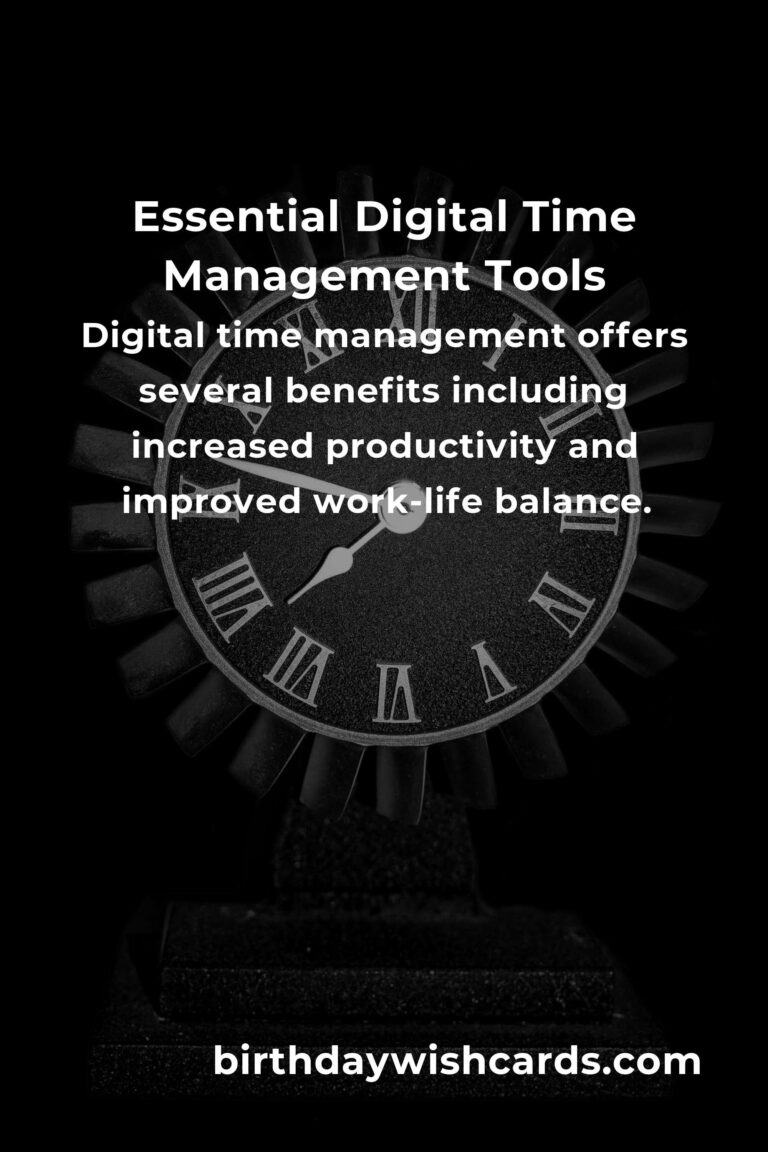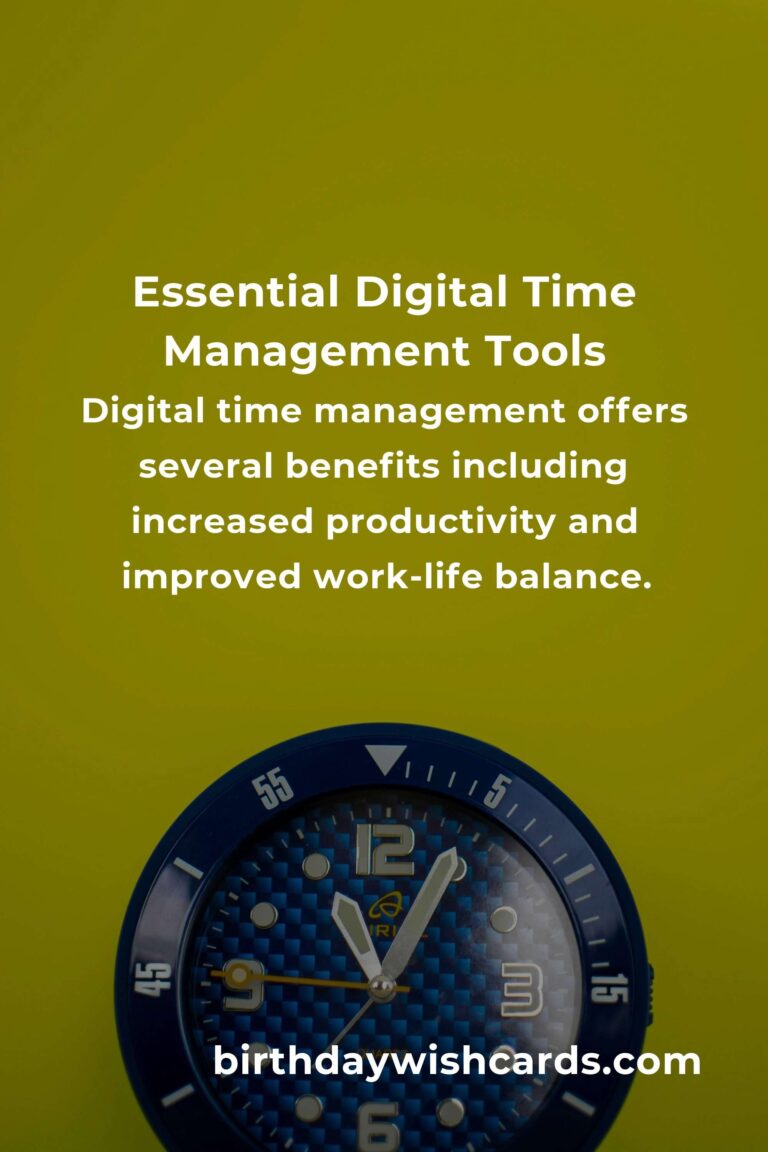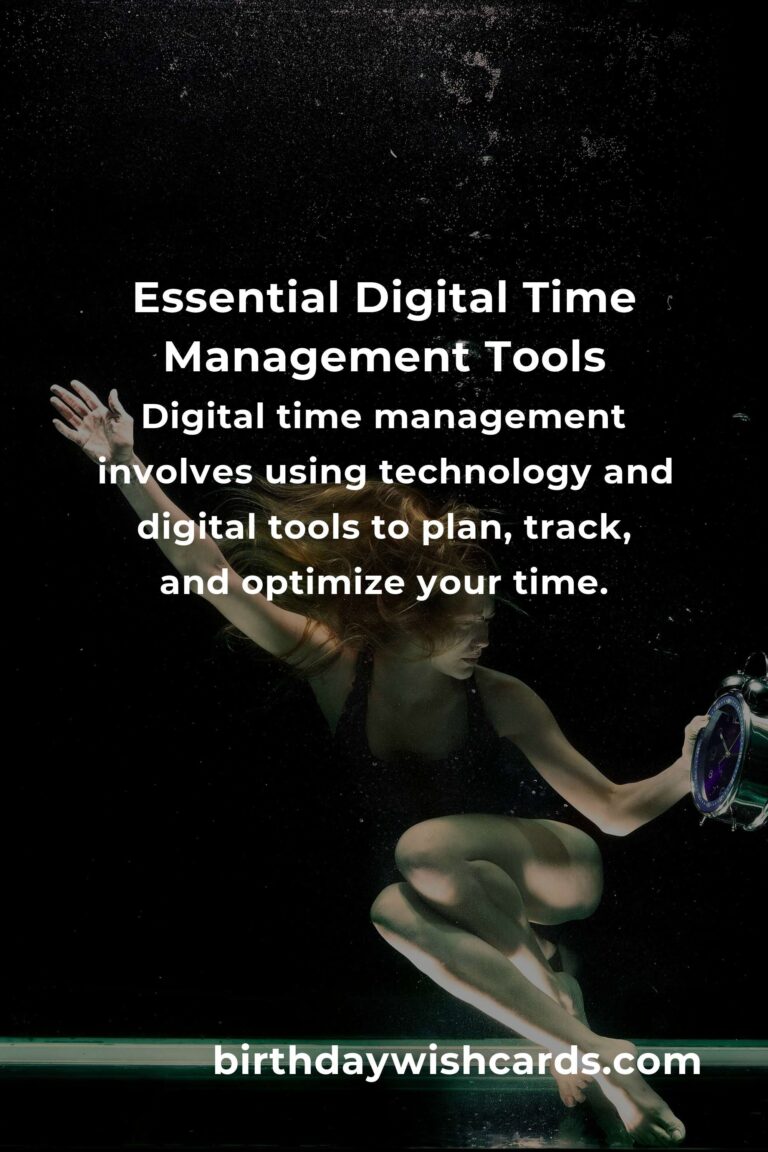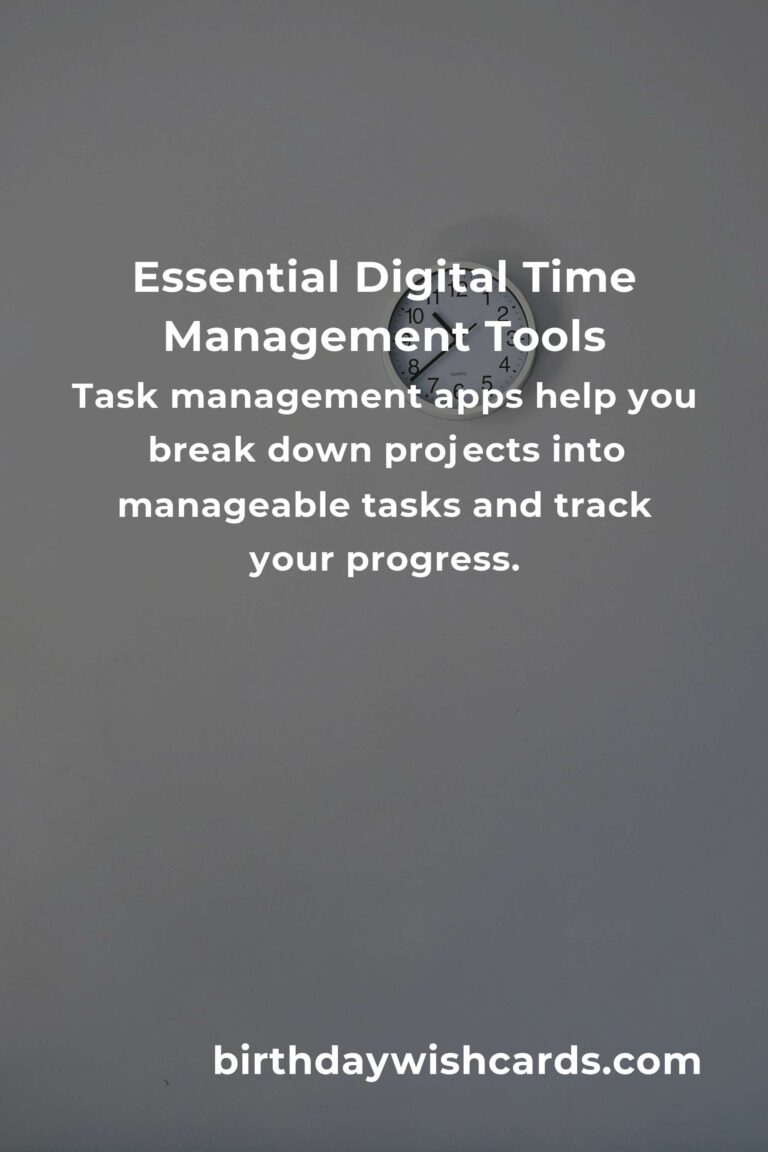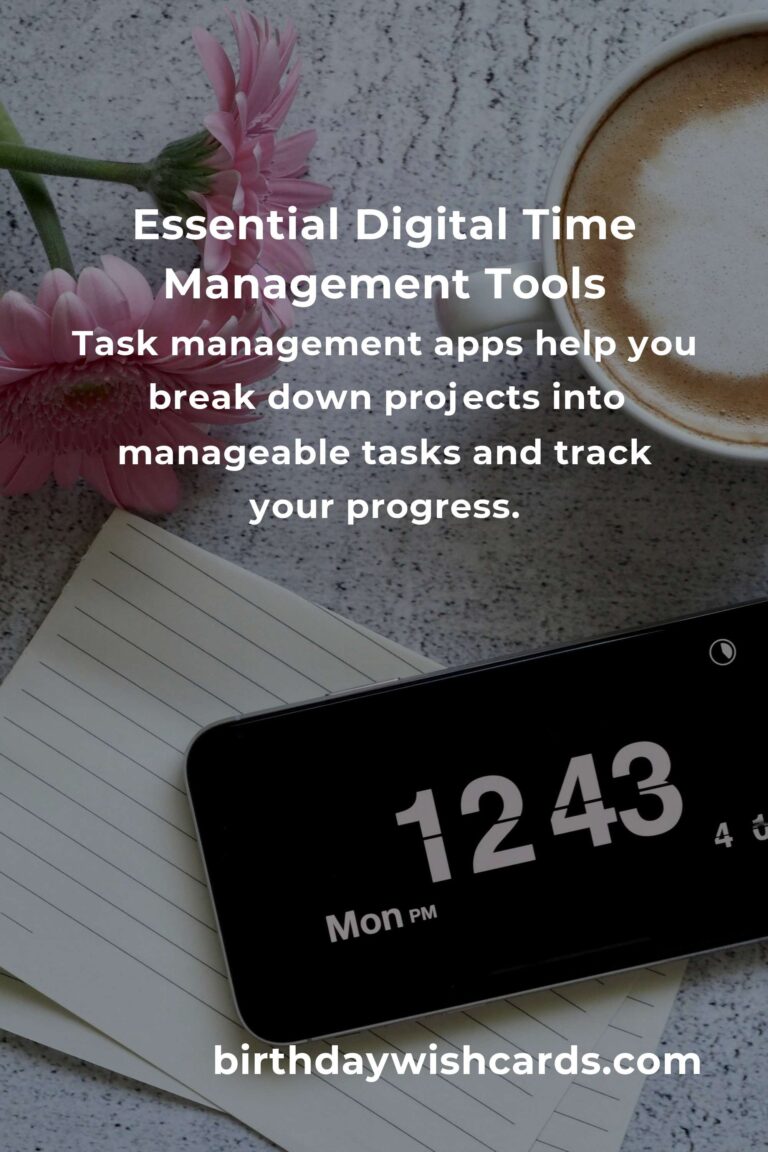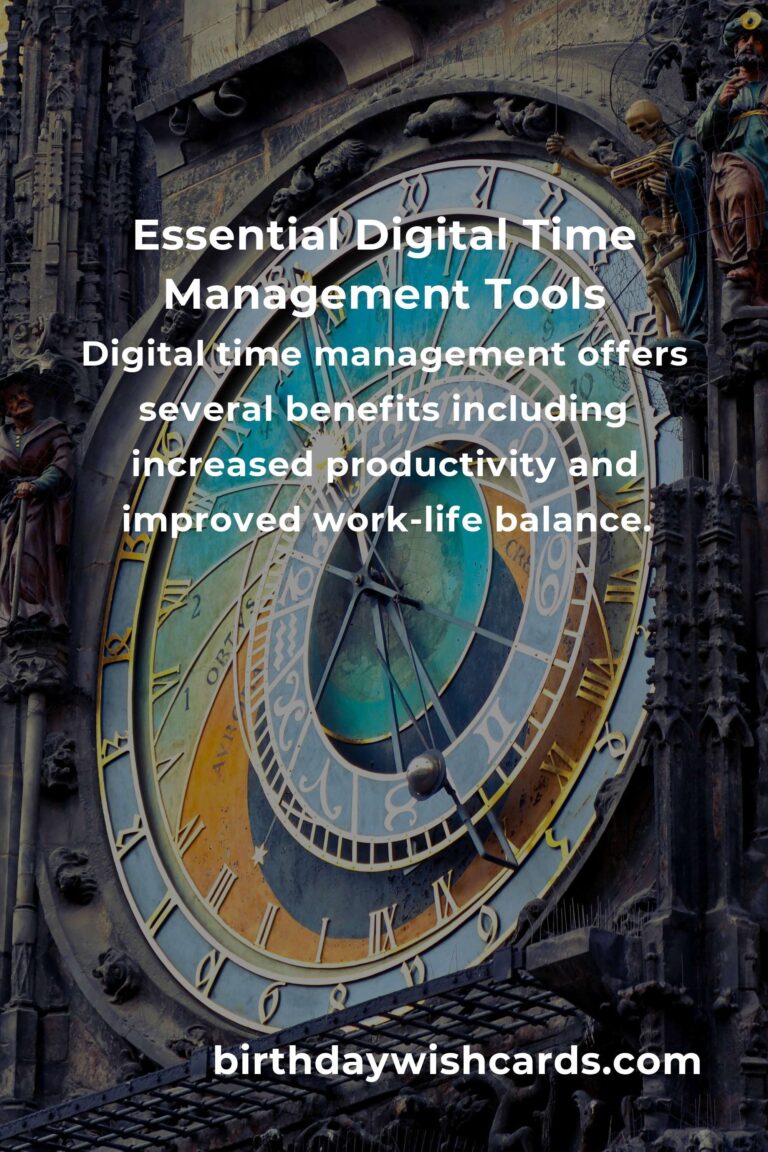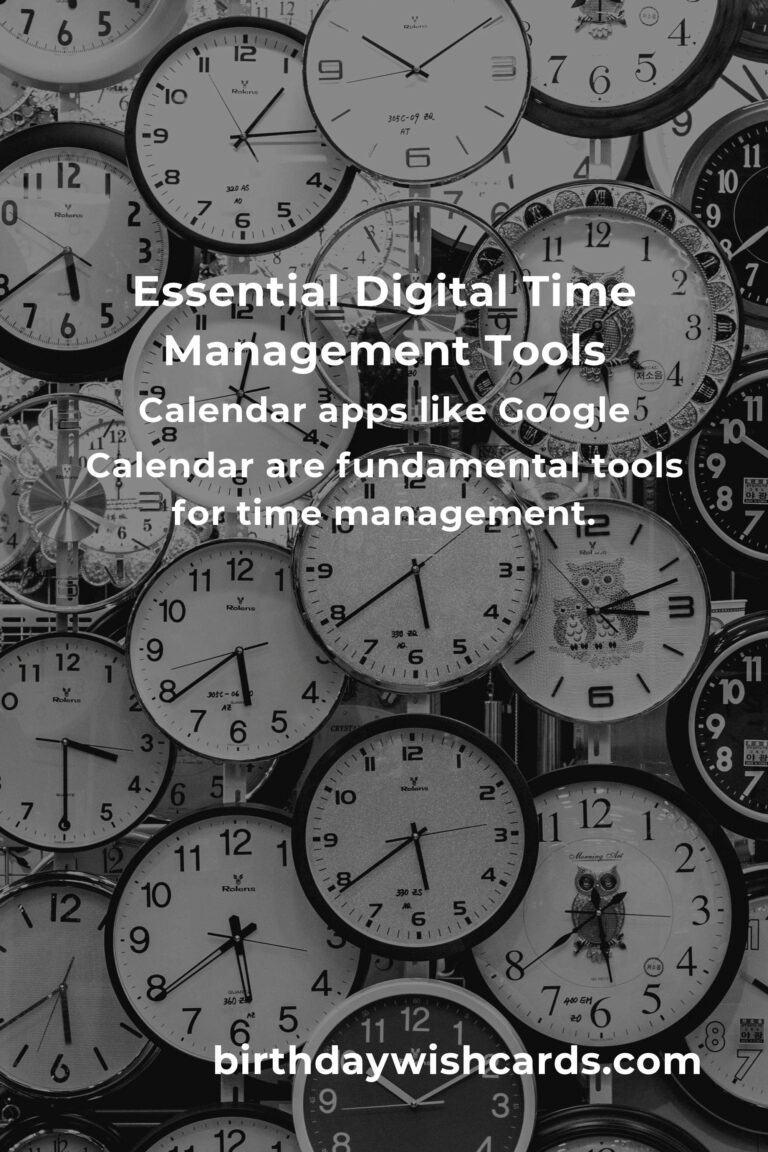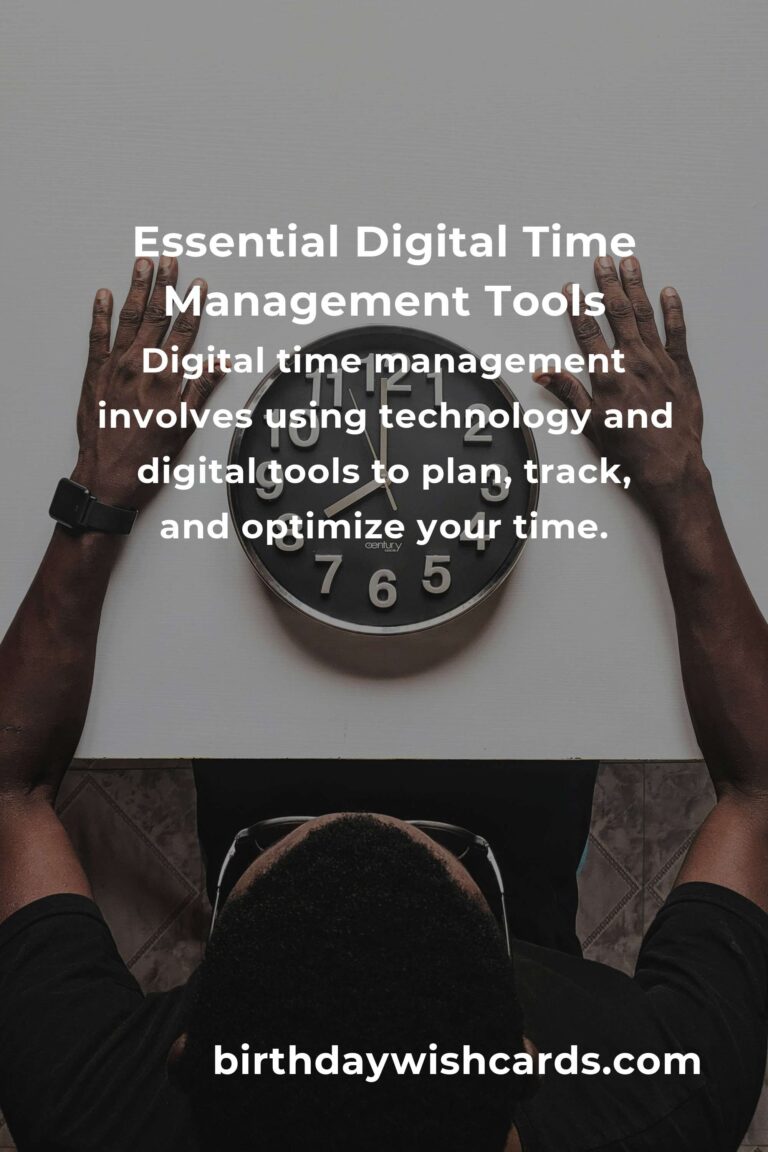
In today’s fast-paced digital world, managing your time effectively is crucial to achieving success both in your personal and professional life. Digital time management involves using technology and digital tools to plan, track, and optimize your time, helping you to be more productive and less stressed.
Understanding Digital Time Management
Digital time management is the practice of organizing and planning your activities to make the best use of your time. With the proliferation of digital tools, it’s easier than ever to keep track of tasks, set reminders, and manage your schedule.
Why Digital Time Management is Important
Effective time management allows you to accomplish more in less time, which leads to more free time, which lets you take advantage of learning opportunities, lowers your stress, and helps you focus, which leads to more career success.
When you effectively manage your time, you are able to prioritize tasks and focus on what is most important. This not only increases your productivity but also improves your work-life balance.
Top Digital Tools for Time Management
1. Calendar Apps
Calendar apps like Google Calendar or Outlook Calendar are fundamental tools for time management. They help you keep track of your appointments, set reminders, and organize your tasks.
2. Task Management Apps
Task management apps like Todoist, Trello, or Asana help you break down your projects into manageable tasks and track your progress.
3. Time Tracking Software
Time tracking software such as Toggl or RescueTime allows you to monitor how you spend your time, helping you identify time-wasting activities and optimize your schedule.
Strategies for Effective Digital Time Management
To effectively manage your time, start by setting clear goals and priorities. This gives you direction and purpose. Use digital tools to create to-do lists and set deadlines for tasks.
Another key strategy is to eliminate distractions. Use apps that block social media or other distractions during work hours. Also, consider setting specific times for checking emails or messages.
Regularly review your progress and adjust your plans as necessary. This helps you stay on track and make necessary adjustments to improve your efficiency.
Benefits of Digital Time Management
Digital time management offers several benefits including increased productivity, reduced stress, and improved work-life balance. By using digital tools, you can streamline your tasks, set realistic goals, and achieve them more efficiently.
Conclusion
Embracing digital time management can significantly improve your productivity and overall well-being. By leveraging technology, you can manage your time effectively, allowing you to focus on what matters most.
Digital time management involves using technology and digital tools to plan, track, and optimize your time. Effective time management allows you to accomplish more in less time, leading to lower stress and more career success. Calendar apps like Google Calendar are fundamental tools for time management. Task management apps help you break down projects into manageable tasks and track your progress. Digital time management offers several benefits including increased productivity and improved work-life balance.
#DigitalTimeManagement #Productivity #TimeManagementTools

